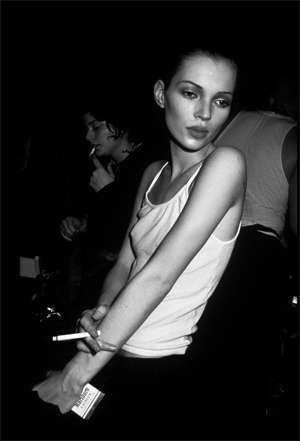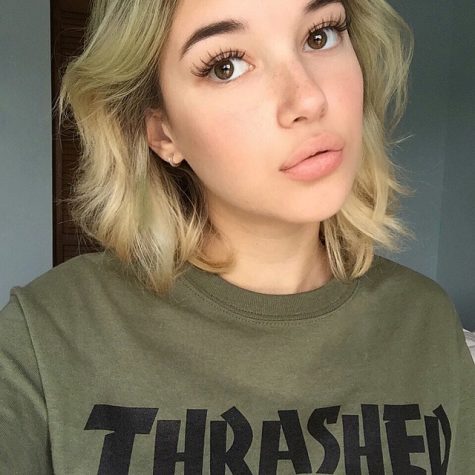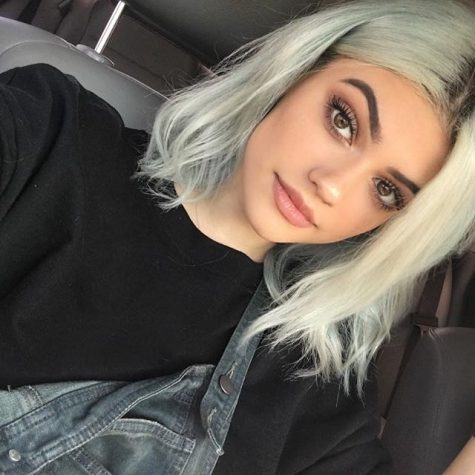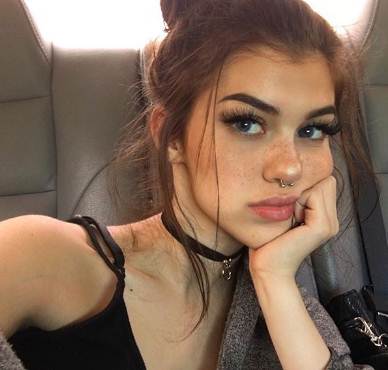Instagram Icons Create More Beauty Standards for Girls
December 12, 2016
For many decades, young women have aspired to look like models. Young women of the 1980’s yearned for a toned, athletic body type like Cindy Crawford. The 1990’s, however, reigned in the era of Kate Moss and Heroine Chic. The term “boyishly thin” spread like wildfire, and women who 10 years earlier strived for a strong physique now wanted to be as slender as possible. Beauty standards are both unrealistic and unpredictable; they tell young women a certain type to look a certain way, yet change that look for consumeristic purposes every 10 years.

The current rise of social media has inflated these aspirations monumentally since viewing these beauty standards is now incredibly accessible. Whereas young women of decades past used to see gorgeous models only in magazines, teenage girls now see gorgeous models every time they log onto Instagram. The models they seek to emulate are no longer distant and unobtainable women– they are regular teenage girls who amass a huge following because of their looks. The relatability of Instagram icons make “normal” teenage girls even more insecure in their looks, as they are constantly overwhelmed by photos of girls their age looking “perfect.”
Sarah Snyder was one of the first Instagram icons, with Eileen Kelly (better known by her Instagram handle, @killerandasweethang) short in follow. Snyder and Kelly are both slim women in their early 20’s who post revealing pictures of their bodies on the Internet. Snyder and Kelly post pictures only of themselves, and nothing else. And while I applaud their braveness in doing this, and acknowledge their right to post what they want to, I do think this trend can be harmful. It portrays to their millions of followers, most of them young impressionable women, that the only thing of value about a girl is her looks. Additionally, it portrays that a girl doesn’t need sports, education, friends, or family (which people traditionally post pictures of) to feel fulfilled in life–all a girl needs is her body. Growing up in the age of social media icons has been a double edge sword: Instagram models posting pictures of themselves is a form of self love and confidence, but can also lead to self scrutiny.

Courtesy of W Mag
Recently Snyder has gone out of style, and Kelly has actually used her platform to start her career as a sex educator. Now @fatherkels and @sahar.luna, last names not known, command the attention of teen girls worldwide. Kelsey and Sahar follow Snyder and Kelly’s precedent of only posting selfies, except they opt to post photos of their face rather than their body. Again, I think this is awesome– but they undoubtedly set the “bar” too high for young girls. The American Academy For Facial Plastic Surgery found in a recent study “that one in three facial plastic surgeons surveyed saw an increase in requests for procedures due to patients being more self aware of looks in social media.” Kelsey and Sahar have reportedly both gotten lip injections, wear fake eyelashes perpetually, and post photos almost exclusively in makeup. And they look so good doing it! I, as a fellow young woman, am proud that they are investing in self care and want to feel/look their best. I do too. This article is not a dig at Instagram icons posting great photos of themselves, but rather a commentary on how teen girls are affected by the unrealistic photos they post. I myself look at their pictures, look at myself, look at their pictures, look at myself and wonder: Why do I look straight out of The Lord of The Rings compared to them? Why don’t have I a symmetrical face? No pimples? Perfect eyebrows? High cheekbones?

Courtesy of Popular Chips

The answer is I am an 18 year old girl. Most teenage girls do not look like Victoria’s Secret fashion models, even though social media strives to make you think otherwise. Furthermore, facial symmetry and high cheekbones don’t equate to beauty! Beauty standards are something that young women grapple with for much of their lives, and it can be difficult to develop self love among the constant comparison to girls who are literally paid to look good. In the end we must remember that beauty is incredibly subjective and that comparing ourselves to unrealistic depictions of girls on the internet dangerously impedes us from embracing our own beauty.


